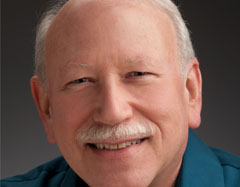December 12, 2018
 Experienced scientists can often quickly guess the likely answers to scientific questions. They may even have good judgment regarding the promise of new avenues of research. Such intuition, together with broad knowledge, can make their scientific careers more successful and allow them to provide helpful guidance to junior researchers.
Experienced scientists can often quickly guess the likely answers to scientific questions. They may even have good judgment regarding the promise of new avenues of research. Such intuition, together with broad knowledge, can make their scientific careers more successful and allow them to provide helpful guidance to junior researchers.
How can such intuitive understanding be nurtured? I was fortunate to have had a wonderful professor in honors freshman physics, John Archibald Wheeler, who taught not only physics but also how to develop one’s scientific intuition. Wheeler’s rule was that when confronted with any scientific question, even just a homework problem, first make a guess about the answer before working it out in detail or learning the answer in some other way. Then keep track of how well the guess agreed with the correct answer. After many years of doing this, a scientist can become quite good at prediction in his or her field.
In his book Thinking, Fast and Slow, the eminent psychologist Daniel Kahneman warns about overreliance on intuition. Such fast thinking can easily go astray, leading to incorrect assertions based on too little information. Associative memory can generate compelling intuitions that are false, so subjective confidence is not a good diagnostic of accuracy. People are particularly bad at statistical thinking, which requires careful weighing of evidence by the slower analytic mind.
Kahneman describes an “adversarial collaboration”—in which experts who disagree on the science agree to do research and write a jointly authored paper—he had with Gary Klein, whose book Sources of Power analyzed how experienced professionals develop intuitive skills. Klein had studied decision making by people such as firefighters who can acquire reliable skill at what they do, whereas Kahneman had studied people such as financial stock pickers who try to make decisions about nearly random phenomena. Although Kahneman and Klein had developed different attitudes, emotions, and tastes that changed little over the years of their collaboration, they ultimately agreed on the criteria that determine whether intuition can be trusted. The ability depends on whether the subject under study is sufficiently regular to be predictable and whether a person has had an opportunity to learn these regularities through prolonged practice.
For a field to be considered scientific, its predictions must generally be confirmed. It is precisely in such scientific fields that experience can lead to reliable expert intuition. But this process doesn’t happen by accident; just as Wheeler taught, developing reliable scientific intuition requires people to pay careful attention and keep track of the success of their initial guesses. Thus combinations of fast and slow thinking about many examples can help scientists develop intuitive understanding of their fields.
Joel Primack
Sigma Xi President